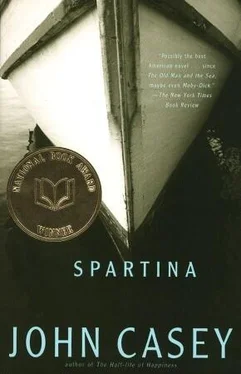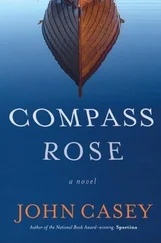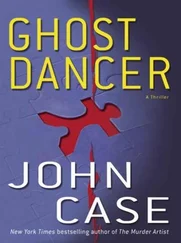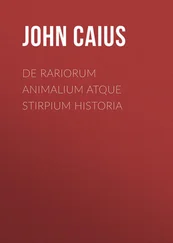“Skip the backing and filling, will you?”
“You remember I told you Jack would do anything I asked? Well, when I started to talk to Miss Perry about your loan, she didn’t seem … I mean, she was just too far along.… It is true that Captain Texeira said it would be okay to lend you the money, but he said it to me. I didn’t think it would be good to try to explain to Miss Perry. So I just called Jack.”
“What are you saying? He’s the one? But the note I signed was to you. Because you said you had Miss Perry’s power of attorney.”
“Well, that’s what I thought I should clear up. Jack loaned me the money, and I loaned it to you.”
“Jesus, Elsie.” But he wasn’t really angry. It seemed farther away than he’d thought. He felt some dismay as he reasoned it through, but not anger. He said, “So your brother-in-law figures I wheedled ten — no, eleven thousand dollars out of you on top of knocking you up.”
“I was afraid you might think that — I mean, that you’d think he’d think that. So I didn’t tell him what it was for.”
“He didn’t ask?”
“No. It’s hard to explain.… It’s not just that he’ll do anything for me.… Every so often he likes to do something that makes him feel madly extravagant. But when Schuyler paid me what he owed me, I paid Jack some of what I owe him. So really we’re almost down to the simplest situation of all, which is your owing me eleven thousand dollars, and nobody needs to know about that except you and me. And after all — considering all the serious things everyone’s been doing — the money part is just comic.”
“Jesus, Elsie.” But he didn’t care to set her right. He couldn’t figure why. Maybe it was because Elsie had saved him just now in a way that absolved her of all her meddling. Maybe it was that the better part of five months at sea on Spartina came to him now to let him worry less about how he stood onshore. Or maybe it was because Elsie had been the one who kept them from sinking into worse trouble, so that he wasn’t the captain of this enterprise, the only one in charge making everything right.…
And still later Elsie said, “Is this how you and May got married? I mean, two people have this flare-up, it’s all perfectly natural at first. The woman fills up with a baby. Then it’s a social problem — in comes her father, the preacher. The man makes an honest woman of her. They get stuck with a life together. I can’t imagine putting up with that.” Elsie looked thoughtful. She added, “As it is, I don’t resent you at all.”
“Is that so?” Dick said. “That’s good. In case you worry about the way you may have led me by the nose, I better say I don’t resent you either.”
“Well, all right,” she said. “Have you noticed that we’re passing up some chances to have a fight? Maybe because we’re passing up our chance to …” She waved her hand again. “Maybe it’s because right now all I can think about is food.”
But she curled up again between him and the corner of the sofa and dozed off.
He felt peacefully attached, but snipped free from wanting anything. He was clear enough for the first time to see how wanting had tugged him hard through the last few years — the long wish for his own offshore boat; the sudden pull of an old surprise that had sucked him in close to Elsie.
Now none of that was wishes anymore. In the little hollow of that shock he wondered what he would want next. He didn’t know, but for a long second he got a sense of what it might be. Whatever it was was invisible but real — maybe a wish to be part of something bigger, as though the shell of his boat, of his family, or even of Miss Perry’s arrangements was getting tight enough for him to molt.
For a moment he felt whatever it was was as huge as the horizon, always there but you never get there. Then he thought it was a little thing, the spark in a herring’s tiny brain that made it splatter upstream with a shoal of other herrings, a little dot that drove its body in a long line.
The size of it flicked from big to little and then vanished. Maybe he had it all wrong, it wasn’t a straight-line wish he needed, no new course ruled in on a chart.
What he thought next was how quick it would all go. No matter what he set out after, his life wasn’t more than a puff, a cat’s paw just shivering the water. You only saw it whole if you were a ways off; you only felt it if you were inside it.
That was one way to look at it all — from outside it was quick. But, sitting here, breathing slow, and, for all the rush of these pictures, barely thinking, he felt completely still in time.
Time slowed up. Then, without moving, time slipped both ways at once. Part of it came from Elsie sleeping: there she was a sixteen-year-old girl, her quick-bird hands curled up, a little girl still younger, his father was still alive, he himself was young, he could feel how little he knew, his mother was alive, she was sleeping, everyone was there.
The future was nearby — for a moment he thought he was there too, or maybe he’d been there and back. He felt that future the way he felt the past still. All at once.
He snorted at himself. This was what old folks thought when their eyesight went and they sat at home remembering, thinking they remembered.
Then, from years ago, he remembered standing watch on a Coast Guard vessel. Near the end of light on a short, cold day in the North Atlantic. Checking out icebergs north of the shipping lanes. Dick saw one, sang out, and looked down to find the officer of the deck. Okay, one mistake — keep your eye on the ball. When the officer looked it was gone. Dick looked and it was gone. The officer asked the radar man, who said there was nothing on the screen. An hour or so later, they picked up a blip on the radar, turned out to be one huge iceberg. The officer and Dick were baffled. The skipper said it could happen like that — you sometimes could see things beyond the horizon. The Eskimos knew about it. Arctic and Antarctic explorers. Called “superior mirage” or “looming.” The old man couldn’t explain it, just that it had to do with layers of air of different temperatures. He said to Dick, “Tell me, Pierce, did you notice if your iceberg looked like it was upside down?”
“No, sir.” When he tried to remember, he couldn’t picture it.
Now, here in the cottage in Woods Hole, he saw it. Piled up like a thunderhead, an anvil of opal. It had been upside down.
Dick’s watch officer said, “Something you didn’t know about, huh, Pierce?”
“You and me both, sir.”
The old man said, “That’ll do, Pierce.”
He liked the old man. The old man had tried to get him to stop being a wise-ass. He’d been a wise-ass. Now at last he let go of being a wise-ass. Of layers and layers. Wise-ass was just one. He let go of being himself.
He was still again, without thought, on watch, just seeing the way things would work out: him staying at home, putting out to sea, the familiar waters from Galilee to Georges Bank, from Georges Bank to Galilee. The house was there on Pierce Creek, there was the salt creek, the salt marsh, the salt pond. He wasn’t going anywhere. So how would things happen? He’d stay in his life no matter how often or how far he put out to sea. The future was that a lot of things would move on away from him — was that it? Charlie and Tom would move on away; it didn’t mean they’d leave, it was that what they wanted and what they’d get done would move on away, link up with things he’d have less and less to do with.
He guessed he’d always known neither Charlie nor Tom would work on his boat. It didn’t bother him, it had been a good part of his wish while he was building Spartina. It’d helped. You don’t get everything. He’d tell them it was all right, so long as they understood he’d have liked to have them along.
Читать дальше












